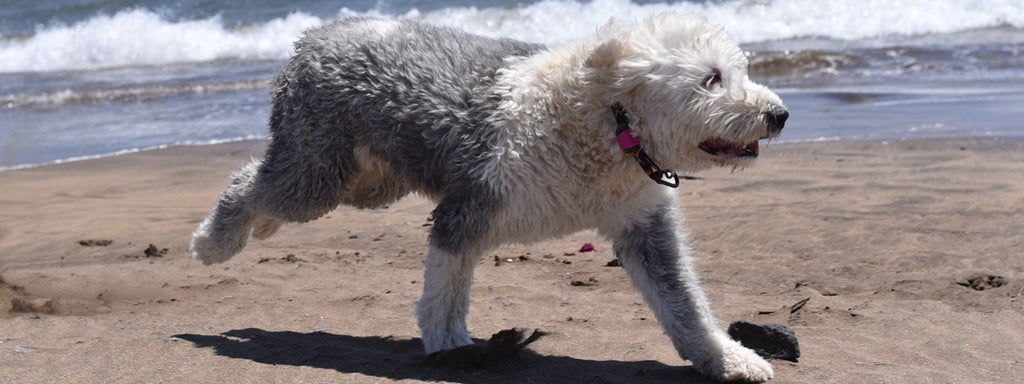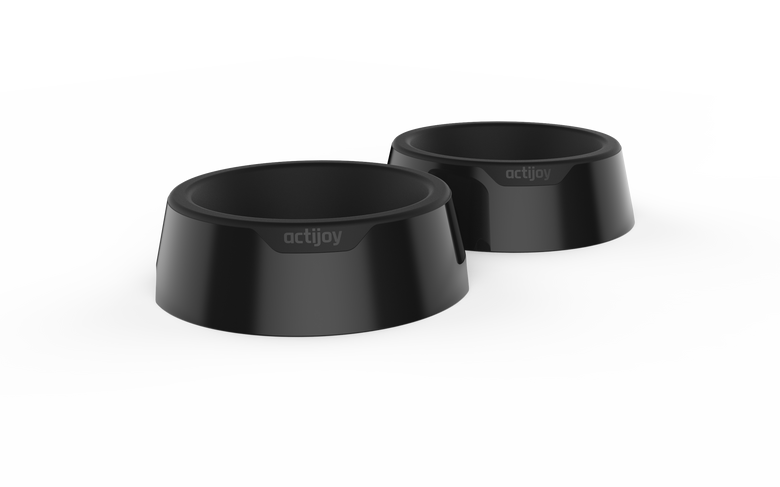Signs of Arthritis in Dogs
The symptoms, causes, and treatment for canine arthritis, one of the most common dog health problems, are discussed.

Nearly every senior dog will experience arthritis to a varying degree. Here, everything a pet owner needs to know about recognizing and treating arthritis, one of the most common dog health problems, will be discussed.
- Limping
- Lethargy
- Increased sleeping
- Slowness to rise, especially after sleeping
- Increased accidents in the house
- Yelping or snarling when touched
- Changes in appetite, mood, or behavior
- Muscle atrophy
- Refusal/reluctance to jump
- Excessive licking of joints
- Refusal to exercise
Arthritis refers to degeneration of the cartilage that protects and cushions joints. When the cartilage wears away, bone rubs against the bone to cause pain, decreased mobility, and stiffness.
- Age
- Orthopedic injury
- Obesity
- Inflammatory diet/poor nutrition
- Joint stress
- Tick-borne illness
- Diabetes
- Cushing’s disease
- Infection
- Inflammatory disease
- Genetics
If your dog is overweight, it is important to first focus on weight loss. Even a couple extra pounds of body mass can cause additional strain on your dog’s joints. Help your dog lose weight by reducing portion sizes at mealtime, reducing the number of treats your dog receives and increasing your dog’s exercise.
Even though it may seem counterintuitive, light exercise is beneficial for arthritic dogs. Short walks improve blood flow and circulation, which reduces swelling and eases the pain. If walking is too painful for your dog, try alternative exercises such as swimming or hydrotherapy. Spending time in the water is great for your dog’s health and can improve muscle tone, circulation, pain, and swelling.
Dog health supplements are also useful for treating inflammation and pain associated with arthritis. These include coconut oil, turmeric, glucosamine and chondroitin, gelatin, and collagen. Before adding a supplement to your dog’s diet talk to your veterinarian about the best options for your pet.

Arthritis Symptoms in Dogs
The symptoms of arthritis in dogs can develop slowly over time and may be easy to miss. They include:
- Swollen joints- Limping
- Lethargy
- Increased sleeping
- Slowness to rise, especially after sleeping
- Increased accidents in the house
- Yelping or snarling when touched
- Changes in appetite, mood, or behavior
- Muscle atrophy
- Refusal/reluctance to jump
- Excessive licking of joints
- Refusal to exercise
Causes of Arthritis in Dogs
Arthritis refers to degeneration of the cartilage that protects and cushions joints. When the cartilage wears away, bone rubs against the bone to cause pain, decreased mobility, and stiffness.
The causes of arthritis include:
- Age- Orthopedic injury
- Obesity
- Inflammatory diet/poor nutrition
- Joint stress
- Tick-borne illness
- Diabetes
- Cushing’s disease
- Infection
- Inflammatory disease
- Genetics
How to Treat Arthritis in Dogs
Arthritis in dogs cannot be cured. However, with proper treatment, the condition can be managed.If your dog is overweight, it is important to first focus on weight loss. Even a couple extra pounds of body mass can cause additional strain on your dog’s joints. Help your dog lose weight by reducing portion sizes at mealtime, reducing the number of treats your dog receives and increasing your dog’s exercise.
Even though it may seem counterintuitive, light exercise is beneficial for arthritic dogs. Short walks improve blood flow and circulation, which reduces swelling and eases the pain. If walking is too painful for your dog, try alternative exercises such as swimming or hydrotherapy. Spending time in the water is great for your dog’s health and can improve muscle tone, circulation, pain, and swelling.
Dog health supplements are also useful for treating inflammation and pain associated with arthritis. These include coconut oil, turmeric, glucosamine and chondroitin, gelatin, and collagen. Before adding a supplement to your dog’s diet talk to your veterinarian about the best options for your pet.
Arthritis Prevention for Dogs
Many dog health problems can be prevented – or at least delayed – with proper care. The best way to prevent arthritis is to manage your pet’s weight. The Actijoy Health & Activity Tracker, as well as the WiFi Food & Water Bowl, can make weight management simple. Pet owners can track their dog’s activity and food intake, then plan for weight loss or maintenance. The Health Book, found in the Actijoy app, enables owners to track their dog’s weight and veterinary appointments to help them stay on top of routine preventative care.Overall, taking a proactive approach to your dog’s health is the best way to keep arthritis symptoms and pain from becoming unbearable for your pet.




